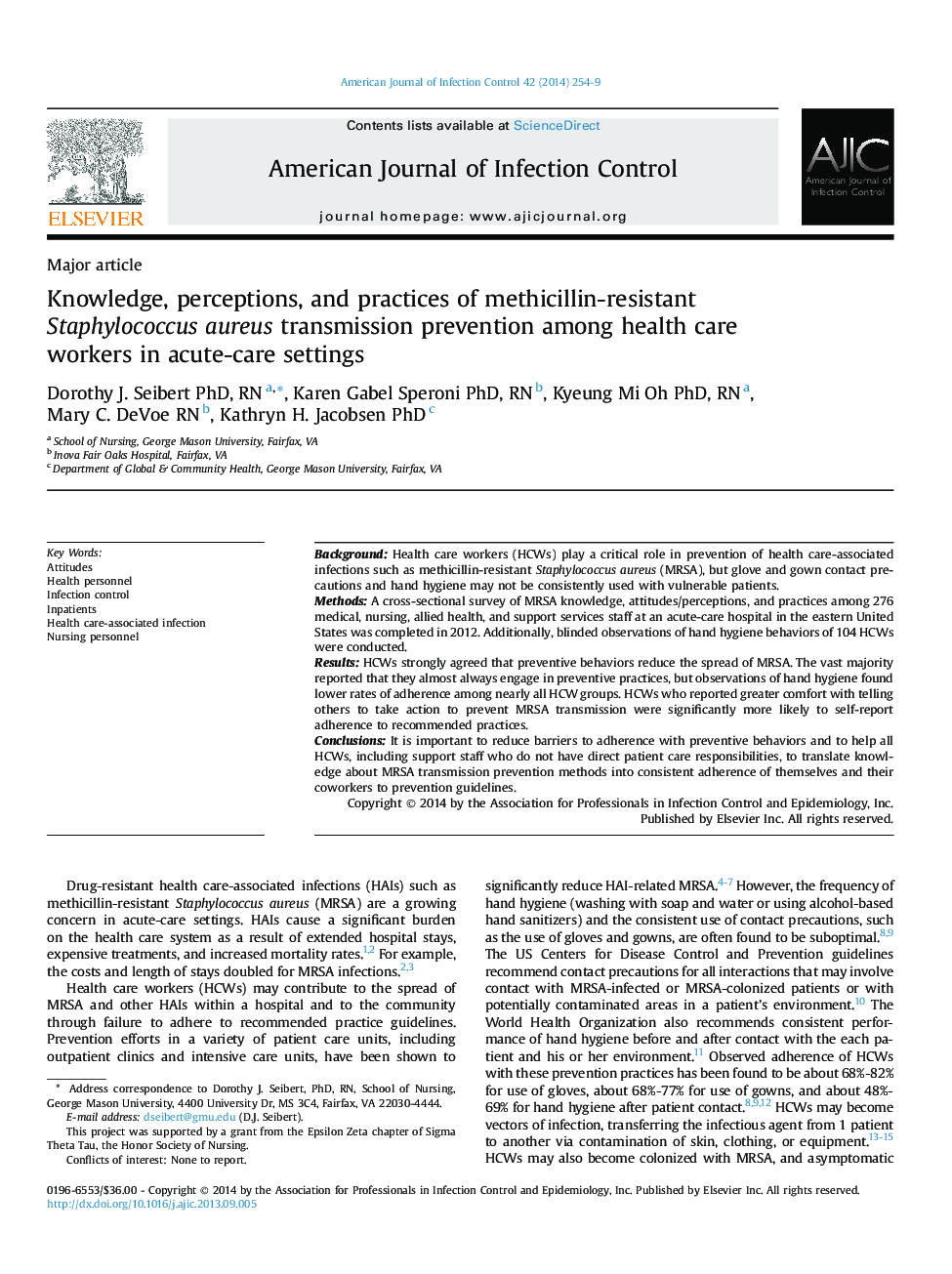| Article ID | Journal | Published Year | Pages | File Type |
|---|---|---|---|---|
| 2637658 | American Journal of Infection Control | 2014 | 6 Pages |
BackgroundHealth care workers (HCWs) play a critical role in prevention of health care-associated infections such as methicillin-resistant Staphylococcus aureus (MRSA), but glove and gown contact precautions and hand hygiene may not be consistently used with vulnerable patients.MethodsA cross-sectional survey of MRSA knowledge, attitudes/perceptions, and practices among 276 medical, nursing, allied health, and support services staff at an acute-care hospital in the eastern United States was completed in 2012. Additionally, blinded observations of hand hygiene behaviors of 104 HCWs were conducted.ResultsHCWs strongly agreed that preventive behaviors reduce the spread of MRSA. The vast majority reported that they almost always engage in preventive practices, but observations of hand hygiene found lower rates of adherence among nearly all HCW groups. HCWs who reported greater comfort with telling others to take action to prevent MRSA transmission were significantly more likely to self-report adherence to recommended practices.ConclusionsIt is important to reduce barriers to adherence with preventive behaviors and to help all HCWs, including support staff who do not have direct patient care responsibilities, to translate knowledge about MRSA transmission prevention methods into consistent adherence of themselves and their coworkers to prevention guidelines.
